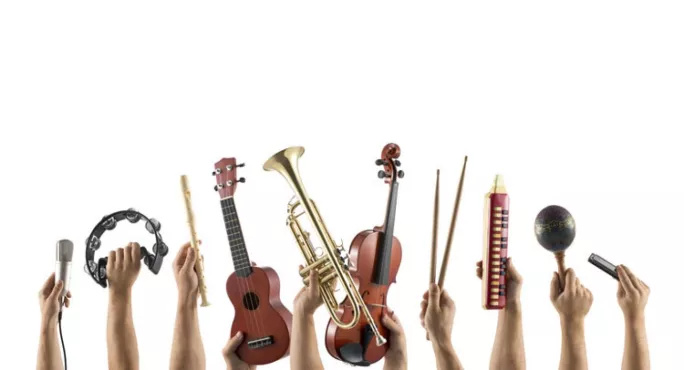4 lessons from music practice that all teachers can try

Can we apply the principles of music teaching to help pupils in any subject?
Having been a musician since I was five and leaving university with a master’s degree in this area, I have done many thousands of hours practising, preparing and perfecting pieces to perform.
And as a classroom music teacher for many years, I have come to realise the skills gained when practising my musical instruments are exactly what children need to excel in any subject - and yet we seem to completely overlook this.
To me, it all boils down to one-word: practice. Doing something over and over again, slowly and repeatedly, until it sticks.
This may sound obvious but I find that, too often, children are moved forward too quickly with their learning from one thing to the next when what they really need to do is practice the skill they have learnt, not just for a day or two, but for a week or a half term.
After all, you can’t pick up an instrument and, after a week, have learnt five different notes and how to play them with expertise. It takes time.
This is why, in my music sessions, my aim is to teach the children only 5 notes over the year - and then, on top of this, we build in the ability for them to play these accurately, in time, reading the music, the dynamics, the rhythms, listening and playing with their peers together and making sure they are in tune as well as watching the conductor.
This is a huge number of skills to learn and develop. So, although using five notes does not seem like many, it becomes a huge task if the children are to be able to play them to a good standard. To do this we practise over and over again.
So, let’s apply this logic to other subjects. Strip back what you need to teach and get the basics right for as long as it takes to get them right. Of course, the challenge is how to make practising something over and over again fun and engaging.
Here are a few suggestions on how you can make this work in the classroom.
Mix things up
In music lessons, we always start with a pulse warm-up, which involves body percussion. However, we always vary this using different pieces of music to inspire the children.
You could do something similar in maths and timetables, for example: have them bang on the table as they recite a sum or sing them, use body percussion, speed write them, have a quiz, use an iPad game…whatever works best.
The key is to find different ideas to teach the same material and keep it interesting.
Structure in key skills
Having a structure of several mini activities for the children to practise key skills is vital: a pulse and listening warm-up, reading rhythm cards, reading the treble clef; warming up and singing, and then playing the piece from the previous week and so on.
The key is having a bank of mini activities for each section that embed the key learning outcomes they need - something that could be applied well to other lessons, too, perhaps once a week.
In English, for example, you could have five minutes practising using adjectives, prepositions, adverbs, improving sentences, key spellings, writing the next paragraph in a story, spotting the mistakes and so on.
Keep the activities short and fast paced and this constant refresher, just once a week, could really help the children master these skills and keep them at the forefront of their minds.
Change the context
When writing a musical composition, the children have to place four beats into each bar. It is surprising the number of children who actually can’t count to four when it is in a completely different context.
As such, when the children have learnt a new concept, it is key that they practise this in many different contexts, in order to master it.
For example, in reading, rather than just use the reading book for their reading level, find comics, joke books, blogs, newspapers, magazines, subtitles to programmes, instructions, cook books, online articles and more.
This variety can help them master and embed all the key skills they need.
Take a step back
The music sessions are structured so that all children can access the lesson without help and support from adults.
The key for this working is that I build in time for the children to practise on their own independently. When we learn a new piece of music, the children are given a time limit and the expectation is they play the piece of music several times within this time frame.
This allows me to observe the children and spot key mistakes, which we can talk about. It takes training, but all my classes now know the expectation during practice time. This can translate across into all subjects.
Sometimes teachers need to just take a step back and observe the whole class and their learning behaviours rather than feel they have to work with a group of children. After all, the children should be working harder than you!
Peter Simons is director of music at Thornhill J and I School and Boothroyd Primary Academy and silver award winner for primary school teacher of the year
You need a Tes subscription to read this article
Subscribe now to read this article and get other subscriber-only content:
- Unlimited access to all Tes magazine content
- Exclusive subscriber-only stories
- Award-winning email newsletters
Already a subscriber? Log in
You need a subscription to read this article
Subscribe now to read this article and get other subscriber-only content, including:
- Unlimited access to all Tes magazine content
- Exclusive subscriber-only stories
- Award-winning email newsletters